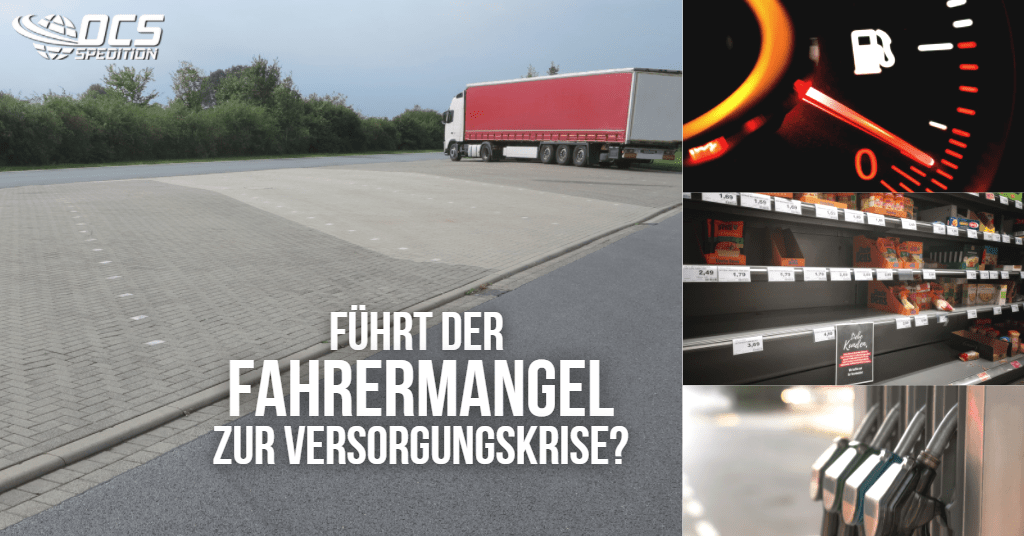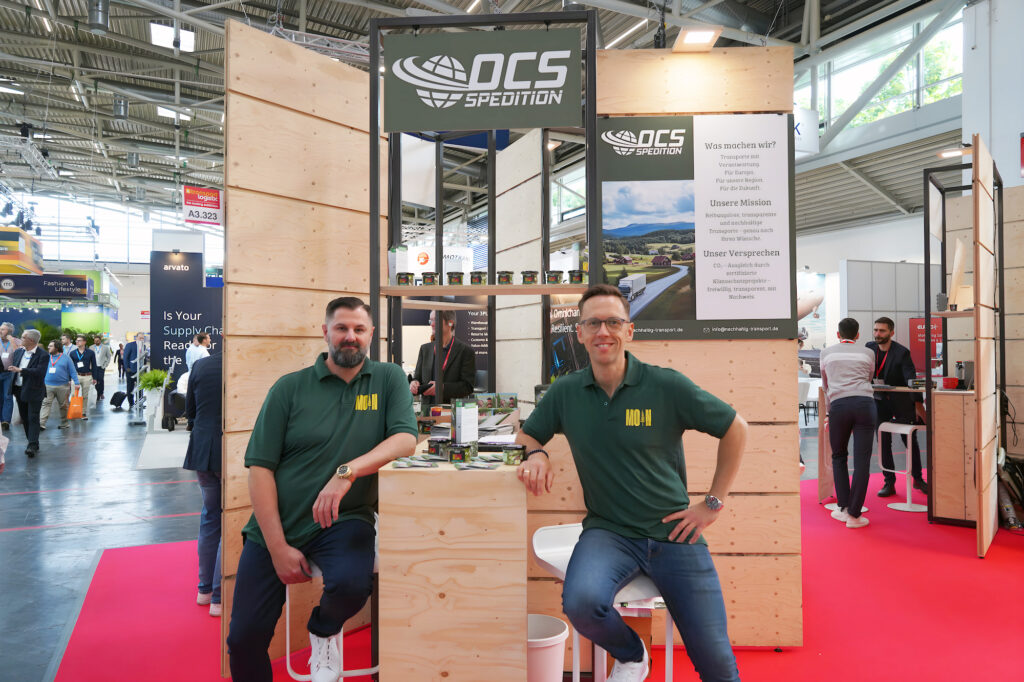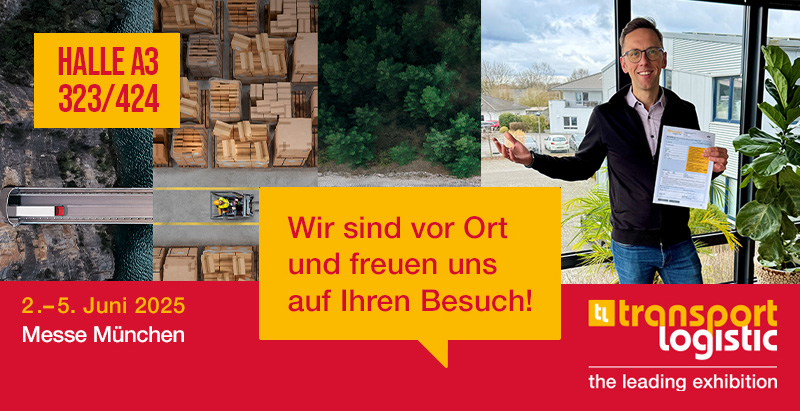Drivers are missing everywhere, in every country
It can still be seen in traffic today: Brummi, the image bearer of the transport industry. The round figure with a hat and broad smile has enjoyed cult status in the industry since the 1970s. Today, the human representatives are just as revered and transporters are jockeying for anyone who can drive a truck because there is a driver shortage in Europe and supplies are threatened.
Chaotic conditions after leaving the EU
At first it looked as if only Great Britain was affected. At the turn of the year 2020/21, the movement of goods was dramatically disrupted as a result of difficult transitional arrangements for the Kingdom's exit from the EU . Some even feared that the British would have to spend the holidays without champagne and Bresse chicken. Today it's less about luxury products for the holiday, but rather the driver shortage is threatening basic services . Brexit and Corona have led to a loss of 19,000 professional drivers in Great Britain, according to the Logistics UK association. Furthermore, much more than just drivers are missing from logistics in September 2021.
UK logistics in a tailspin
There is a shortage of skilled workers in warehousing, transport managers and forklift drivers, among other things. Over 25% of the companies surveyed complain about a staff shortage in 2021. A significant increase compared to the previous year, when the figure was around 20%. Visas with a duration of 3 months are less attractive for workers from abroad than the EU labor market. Truck drivers in particular complain about working conditions in Great Britain with a lack of safe parking spaces for rest periods. In total, the British government also admits, there is a lack of 1,400 parking spaces for overnight stays.
Logistics without professional drivers
In Germany alone, the demand for professional drivers is currently between 60,000 and 80,000, the German transport newspaper (DVZ) from October 2021 So far, help has come from abroad. More and more drivers moved to the Federal Republic of Germany, where working conditions and wages were generally better than in their home country. Conversely, the transporters had an army of cheap workers at their disposal. For many, at first glance it's a win-win situation. But since the beginning of this development, quality in transport has suffered. More and more semi-skilled workers and fewer skilled workers made the digitalization of goods transport more difficult. After all, goods were getting from A to B. The fact that the drivers were now missing from their home countries set a spiral in motion. Transport companies in Poland, whose drivers signed up with German companies, recruited drivers from Ukraine. Ukraine? An endless cycle opens up, in whose dark vortex price gouging, greed for profit and merciless competition run their course.
Corona is fueling the emergency
During the peak of the pandemic, trucking companies continued to transport food and other goods from producers to consumers. So far normal. What didn't happen was the training of the next generation. In Germany, the reasons for the decline include the fact that 30,000 drivers are retiring. However, only 17,000 young people are moving up. Another reason can be found in the suspension of compulsory military service. Around 10,000 drivers were trained by the federal government every year, but they are now missing. Last but not least, many experienced drivers adapted to the conditions under Corona. Some retired prematurely. Others were unable to take their driving tests to the extent required. Now the battle for drivers is becoming cutthroat: with top salaries of up to EUR 63,000 per year, transport companies in Great Britain are vying for anyone who can drive a vehicle weighing tons.
Even more demand from Poland
That can help Europe, but not the United Kingdom. Leaving the EU makes the island kingdom uninteresting for professional drivers. Complicated entry conditions and a short work permit tempt very few people to be interested in an employer in Great Britain. Alternatives come from Poland. There is a shortage of up to 120,000 workers in the transport sector with a total population below that of Germany. Experts explain the strong demand with the participation of Polish hauliers in EU freight traffic, which has increased to around 33%.
Solutions for customers and logistics
The signs in the transport industry are already pointing to the future. At least the legal situation allows the transport of freight with autonomous vehicles. Test routes for driverless transport have been set up, but production is still in the development phase. Scania is well ahead within Europe, but not as far as China and the USA, where 4-level road tests are already underway. In Sweden, where the local motor vehicle authority has now opened a several 100 km long stretch of highway for testing purposes, vehicle manufacturers are testing the Hub2Hub . However, experts expect results in 5 years at the earliest. – That’s too long to allow the flow of goods to dry up. A Munich start-up that is working on solutions to control trucks digitally and remotely offers hope. Ideal for IT-savvy young people and it is to be hoped that ideas like these will attract more young people to the industry. Instead, something completely different happens.
International migration of workers
The idea of recruiting truck drivers from abroad with top wages is not new, even if the reasons are different today than they were 15 years ago. There was no shortage of drivers back then, but drivers based in Germany earned more than their colleagues from abroad. For many years the “offspring” came from neighboring European countries. The haulage company wins and there is a shortage of workers abroad. This now not only affects the transport sector. Brain drain describes the loss of academically educated minds abroad, which is now causing problems for almost all disciplines. Countries with rather high wage levels increase the effect. In France, the unions are calling for the general tariffs to be increased and are warning of the consequences!
Control cabotage traffic more closely
Could better control of cabotage traffic provide relief? At least this is conceivable in domestic European traffic. With cabotage, EU-based freight carriers take over the transport in another EU country and transport it within this country. Many voices can be heard among German logistics experts who assume that there is more cabotage traffic on national highways than expected and that stronger controls are therefore desired. This cannot initially provide any relief when it comes to the driver shortage. Nevertheless, a tough crackdown on disregarding the cabotage regulations could ensure that freight in national transport increases again, better wages are paid and thus the attractiveness of the job increases.
Great Britain today, the EU tomorrow?
No fuel at the petrol stations, empty shelves in the supermarket – the situation in the UK is dramatic at times, but possibly a harbinger of what is to come across Europe. Staff shortages affect many industries. Nursing is just one example and even agriculture is affected. A lack of drivers and other skilled workers means that British pig farmers are stuck with their animals. This means that livestock breeders are the next link in the chain to fall into crisis: without transport, no one can slaughter. Even if the animals make it to the slaughterhouse, there is a lack of employees there. Farmers have to procure more feed for animals and there is no space on the farms for the next generation of piglets. Finally, farmers pay fines if the animals exceed their slaughter weight. The number of emergency killings is increasing. As dramatic as this may seem for the UK, the situation is not far from the same across Europe.
Professional associations advise taking countermeasures
Similar to Logistics UK, the Federal Association of Road Haulage, Logistics and Waste Management (BGL) the situation and recommends similar measures. This includes improving the image of professional drivers. Brummi sends his regards. Better training and more further training should make the profession attractive. The best way to achieve this may be to adjust wages. On average, German drivers work for an hourly wage of EUR 14.21. Semi-skilled workers only get EUR 12.91. On average across the country, skilled workers earn noticeably more, namely EUR 19.97 and EUR 16.02 if they work semi-skilled. Who wants to submit to the conditions of the street? Ambitious career starters ultimately have a free choice of career.
The OCS in this situation
Of course, we are observing the disruption in freight traffic, which is not solely due to the pandemic. The demanding logistics that large shippers such as online shops insist on require well-trained drivers. Thanks to long-standing contacts and a broad network of reliable hauliers, we know the competence of the drivers with whom we cooperate. Specialist personnel are needed for demanding freight to Scandinavia or to Poland and Russia. We know the best. Call us before you run into transportation problems.






